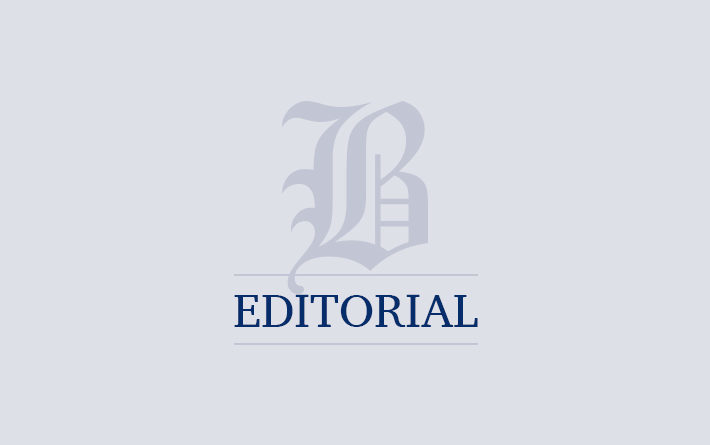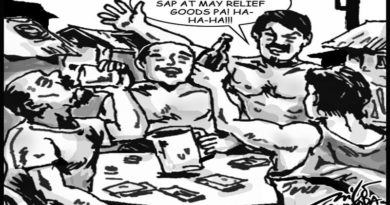EDITORIAL: Old formula, same results?

After a continuous slowdown over the past five years, Thai economic growth is expected to reach a new low this year. Given the grim outlook, economists and observers are wondering why the government insists on clinging to the same old “stimulus” formula, which has done little to improve the economy in the long term or lift it out of the doldrums. Some have even called it a formula for failure.
Many measures included in the 316-billion-baht stimulus package approved by the cabinet yesterday are identical, or at least similar, to strategies used by the previous military government.
Key cabinet figures, including Prime Minister Prayut Chan-o-cha, oversaw those strategies during the five years of the previous administration. As such, they should have learned from past experience and come up with more effective and focused measures.
ADS by Cloud 9:
.
– SPACE RESERVE FOR YOUR ADVERTISEMENT –

The latest stimulus package is comprised of three types of measures: assistance for people affected by the drought crisis, efforts to mitigate the hit to the economy from the global slowdown, and helping low-income earners and the elderly with the high cost of living.
While some strategies — such as deducting tax on machinery purchases for businesses — look promising, most of the stimulus measures have raised eyebrows.
The previous and current administrations led by Gen Prayut seem to be especially obsessed with cash handout policies. These include the welfare card scheme, which was implemented in 2017. Under this scheme, registered low-income earners receive a monthly credit of 200-300 baht to buy goods at “Blue Flag” shops.
ADS by Cloud 9:
.
– SPACE RESERVE FOR YOUR ADVERTISEMENT –

Under the new package, the monthly credit will be topped up to a range of 300 to 500 baht this and next month for the 14.6 million welfare cardholders. Others benefiting from extra cash handouts will be the elderly, parents (for childcare) and certain groups of farmers.
The government stimulus measures also aim to boost local tourism. Included is a 1,000-baht giveaway for 10 million Thai tourists who visit destinations outside their home provinces and a 15% cash rebate of up to 30,000 baht on their tourism spending.
Low-interest rate loans will also be offered to farmers, small- and medium-sized businesses and home buyers.
Doubts are growing whether the stimulus plan will actually boost the economy. The handouts and loans may help trigger cash flows, but economists point out the effects will likely be short term and benefit only certain sectors of the economy.
The handouts, in particular, may help inject money into people’s pockets, but the meagre amounts involved won’t make much difference to their spending behaviour. Meanwhile, the benefits of increased spending at Blue Flag stores will mainly be limited to registered shops and the manufacturers of products on sale there.
Observers are also wary that low-interest rate loans could exacerbate the problem of indebtedness in target groups.
The previous government implemented a similar tourism measure by offering tax cuts for local holidaymakers. However, no spectacular results were achieved. A survey by the Tourism Council of Thailand and Google last year showed most Thai tourists were not interested in the tax break, with only a small number taking advantage of the incentive. That prompts the question of how much the new tourism spending measure can boost revenues.
The government should pay heed to warnings that this stimulus package will not bring sustainable results. Instead of recycling a failed formula, it must come up with more strategic and focused measures to lift us from the slump.
EDITORIAL
BANGKOK POST EDITORIAL COLUMN
Email : [email protected]
ADS by Cloud 9:
.
– SPACE RESERVE FOR YOUR ADVERTISEMENT –


All photographs, news, editorials, opinions, information, data, others have been taken from the Internet ..aseanews.net | [email protected]
For comments, Email to :D’Equalizer | [email protected] | Contributor









